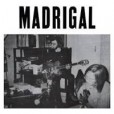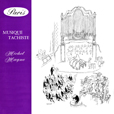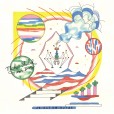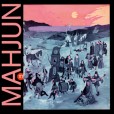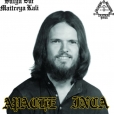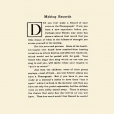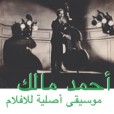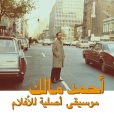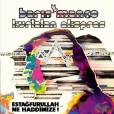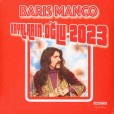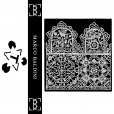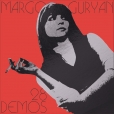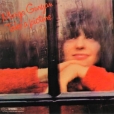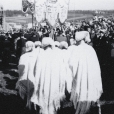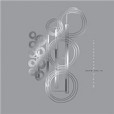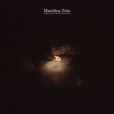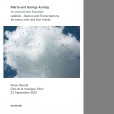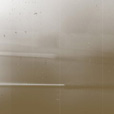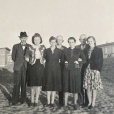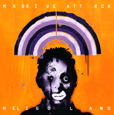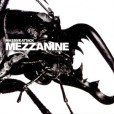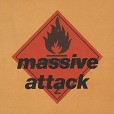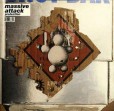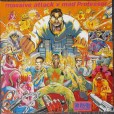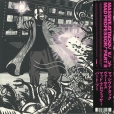Your basket is empty

The Vannier collaborator births this Finders Keepers’ imprint with a late-sixties knockabout conceptual-pop riposte to musique concrete: found sound, industrial noise, piano jazz, avant orchestration, signature cimbalom.
‘Not a Best Of, but a reflection of Tori Kudo’s evolution as a composer, from playing with seasoned musicians, to playing with people just starting out, from playing with meticulous scores, to playing call & response melodies written down, to the songs here — instant improvisations based on keyboard compositions that Tori plays for the group. Yes, that is it. He plays a recording of himself on the keyboard, with singing or humming sometimes and he leaves it to the band to interpret this on the spot. Sometimes, you can make out the melody, other times it is quite obscure, as if a sort of common shyness flows out of the collected instrumentarium. And other times, well, it is a big party.’
Their classic, influential, second Saravah, from 1974, joined by the great Brazilian percussionist Nana Vasconcelos. Leftist folk prog turned outernational psychedelic fusion. Try fourteen-minutes-long La Ville Pue.
Atmospheric, swinging Algerian soundtrack music from the 1970s, swirling together jazz, psych, funk and muzak, with tasty North African, Arab flavours. An eight-page full-size booklet contains rare photos, an interview with the artist from 1978, and a brief introduction to Algerian cinema.
‘We first became aware of the Florence-based composer Marco Baldini via the incredible Another Timbre label.
‘His albums, Vesperi and Maniera, blew us away. Maniera, Marco’s second album for the label consists of seven chamber works for strings, beautifully played by Apartment House. If you haven’t heard it go straight to Another Timbre’s Bandcamp and check it out! Vesperi, Marco’s first release on Another Timbre, from around a year before is also absolutely unmissable, it’s comprised of three pieces derived from works by 16th century Italian composers alongside original compositions.
‘Both albums have provided much needed calm in turbulent times. Marco kindly accepted our invitation to compile a mixtape, and here it is! Thank you so much, Marco!’
“Transportées is an electroacoustic work. From archaic to electronic trance, a musical thread runs from Brittany to Tunisia. We follow a trance-like path through recordings, traces of oral traditions. At the root of this composition is my taste for archives and my fascination with songs that have been captured, recorded and fixed. With my microphones, I follow a documentary and musical path that, between Brittany, Germany and Tunisia, crosses the first sound recordings fixed on flat discs, oral transmission, the energy of the return to the homeland and a K7. On this K7, a mother passes on an endangered repertoire to her son, who records it. Transportées starts with this K7.”
‘Mariolina Zitta began working with natural sounds at the end of the 1980s, developing a passion for speleology. Her encounter with Walter Maioli was fundamental, guiding and influencing her definitive research into sound archaeology and the primitive sources of musical acoustic phenomena. In these recordings Mariolina conducts a magical ritual as a cave priestess, celebrating the icons par excellence of the mysteries of the night: bats. The specific frequencies of the calls of these fascinating creatures are recorded with special detectors used by ecologists, creating an organic synthesizer. The fusion with the sounds of natural objects (stones, stalactites, logs, bone whistles, Tibetan bells, mouth bows, trumpet shells) and the vocal modulations of harmonic singing allow us to travel into a still unexplored sound dimension, through an evocative experience of total sensory listening. It is an arcane landscape filled with pure vibrations, magnetic resonances and aquatic sounds; an ancestral enchantment on the border between consciousness and dreams, a symbolic liturgy of primordial reverberations, echoes and whistles.’
An edition of 200 copies.
‘What playing!’ raved Alex Ross in the New Yorker. ‘Notes were placed with surgical care; inner voices gleamed in crystalline patterns; elusive emotional states were painted with quick, light strokes.’
A compendium of tiny homages to composers from Scarlatti to Stravinsky, and tributes to colleagues and influences, interspersed with heart-stopping Bach transcriptions. The wit and sublimity of these games, the incisiveness of the playing, four hands on the piano, and the affection between the elderly partners, are really something to see. Off the beaten path for us, but hotly recommended.
Sublimely beautiful, emotionally wide-open meditations on a wonky piano, exploring the same spare, enraptured equivocacy — getting lost in order to find or recover something — which you hear in Satie, Mompou, Cage, Duke, Monk, Masabumi Kikuchi…
‘Mashu leaves nowhere to hide, his playing is poised and coolly controlled, focusing on the beauty of simplicity and purity.
‘The lo-fidelity plays a part too, these recordings are clearly diaristic, caught close up, granular and beautifully blown out in places, adding a level of cohesion to a genuinely special suite of music that melts so effortlessly into the everyday.’
Very warmly recommended.
